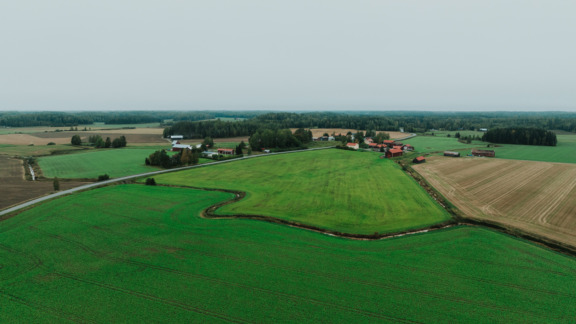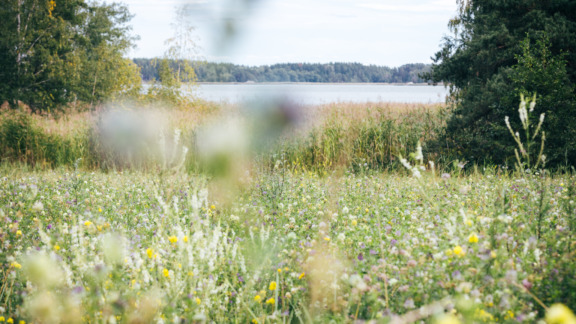Healthy soil as a multi-benefit solution – Carbon Action goes Europe online
The breakfast seminar on soil carbon was, originally, meant to be held in the European Parliament in March 2020. Due to the prevailing COVID situation, the seminar was postponed to autumn – and then finally organized as a webinar on Thursday 29 October. The webinar gathered at least over 130 participants, and it was funded by the Strategic Research Council at the Academy of Finland as part of the Carbon Action platform and stn MULTA project. In the Carbon Action platform farmers, scientists, companies, and decision-makers work closely together, which was also reflected in the programme of the webinar.
The timing was good. The European Parliament and the EU Council of Ministers agreed on their respective positions on the new Common Agricultural Policy last week. The European Parliament had agreed on their position on the new EU Climate Law the week before. It was thus very fitting to have the honour of having the two focal MEP’s for the policies, Elsi Katainen (Renew Europe), the vice-chair of the Agricultural committee of the European Parliament and rapporteur of the CAP transitional legislation and Jytte Guteland (S&D), rapporteur of the Climate package, to co-cost the webinar. The webinar was moderated by Laura Höijer, Content Director of the Baltic Sea Action Group (BSAG).
In her opening greeting, Elsi Katainen endorsed the voting result of the European Parliament on the CAP and the high priority for climate and environment measures in the EP position, as examples of which she mentioned the ring-fencing of 30% of direct payment to eco-schemes, that can support carbon farming and nutrient recycling. Even more interesting for carbon farming are the new output indicators that will be developed in the near future. Ultimately, however, as Elsi pointed out, it will be the level of ambition and measures in the Member States CAP Strategic Plans, that will guarantee the result. Finally, Elsi reminded that Horizon Europe has identified the five most challenging topics for Europe, so-called missions – and soil is included. A mission in the area of soil health and food will provide a powerful tool to promote carbon farming and develop solutions for restoring soil health.
Saara Kankaanrinta, chairman of the board of the BSAG and of the Carbon Action steering group, puts it very simply. Soil holds almost twice as much carbon as plants and the atmosphere combined and its potential to further sequester carbon is significant. At the same time, we protect the world’s biodiversity, of which 25% lives in the soil. In return, healthy soil means less emissions to waters, thus mitigating eutrophication. In order to realize these positive outcomes, she calls for a paradigm shift in agriculture. One that abandons degenerative farming practices and goes beyond sustainable, to regenerative agriculture.
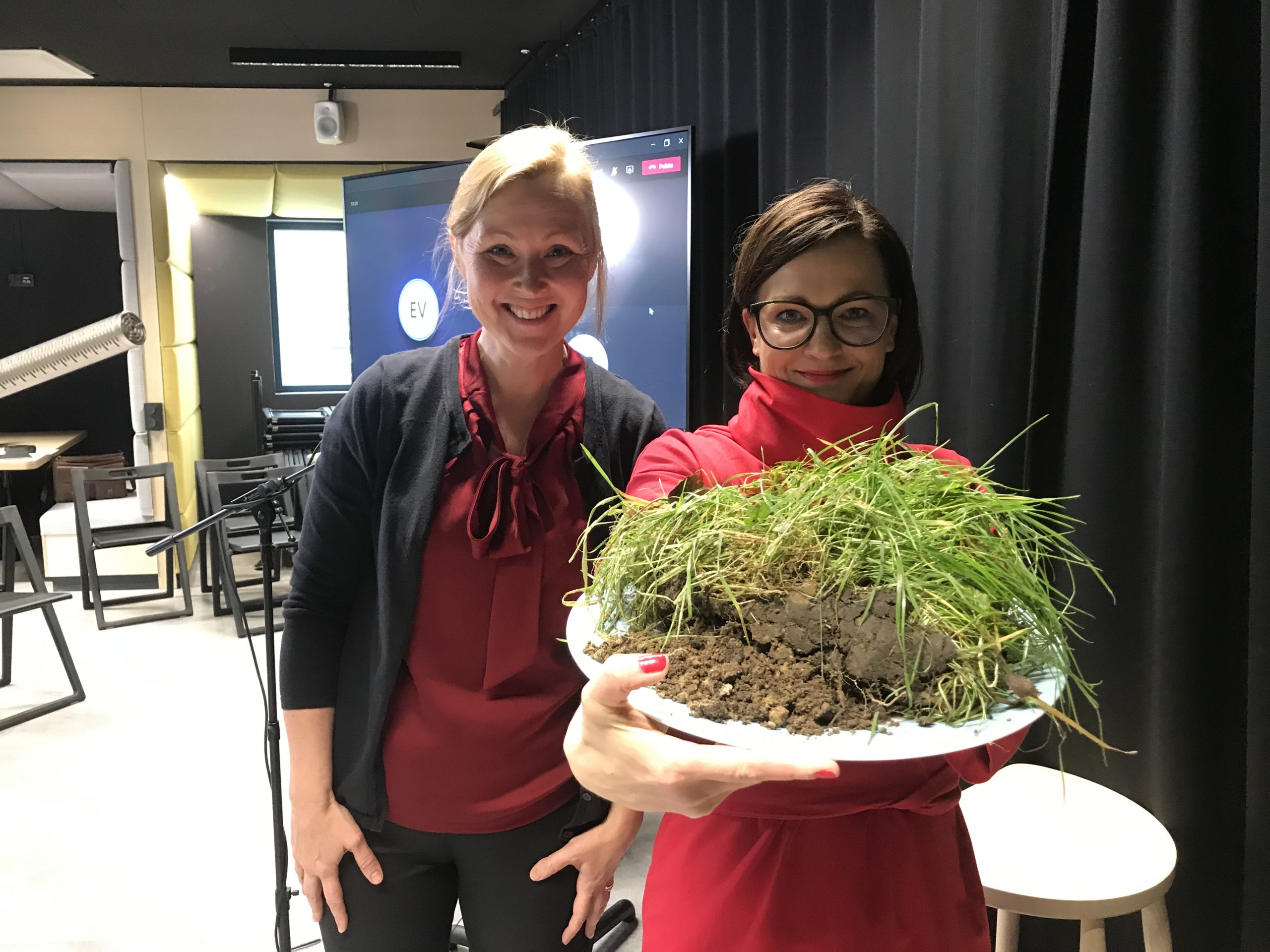
Saara told that Carbon Action has been successful in scaling activities. For example, new carbon farmers have been gained through Carbon Action Club and business co-operation. Digital learning is being developed together with Reaktor, the maker of the famous Elements of AI course. Carbon Action platform currently also trains 30 agricultural advisors to become top experts in soil health and carbon farming. In the discussion, Saara pointed out that policy is the biggest steering method for the change – or at least should be. The present decisions on CAP might not steer the change as strongly as we would have hoped.
Carbon Action is farmer-based and constantly taking shape in interaction with the farmers. 100 Carbon Action Farms test practices and collect experiences. Juuso Joona, regenerative farmer from Carbon Action Farm, pointed out that regenerative agriculture brings multiple benefits – for the farmer, for the environment and for the society. He illustrated that regenerative farming consists of practices that are common and mostly well-known to our predecessors. It is not about big investments in technology, but about knowledge. The biggest difference from the farmers’ perspective is to adopt a holistic management approach in order to harvest full benefit. To scale-up this transition, farmers need incentives in form of stronger conditionality and financial rewards through the CAP. In particular result-based payments, which are possible in the new CAP, can work well as they offer sufficient flexibility for the farmer to adapt to different conditions as well as more cost-effective monitoring. As an example, Juuso proposes year-round crop cover which can be monitored by Sentinel 2 satellite imagery.
Carbon Action platform contains multiple research projects and a multi-disciplinary network of researchers. Jari Liski, Research Professor of the Finnish Meteorological Institute and the co-ordinator of the scientific work of the Carbon Action, presented the scientifically ambitious measurement and verification system that is being developed. The verification system uses extensively collected data and can model and predict carbon sequestration even in areas where measurement data are scarce. A Field Observatory has been created to illustrate the methods developed in the project and the results obtained from them. On a societal level, scientific verification provides a basis for agricultural and climate policy instruments and a possible carbon credit market. Jari’s encouraging message is that as they have witnessed on the test fields during this initial 2-year process, changes in the soil can happen quickly. Jari concluded that scientists can affect the rate at which the results are adopted in the society by communicating about the work and results openly and actively.
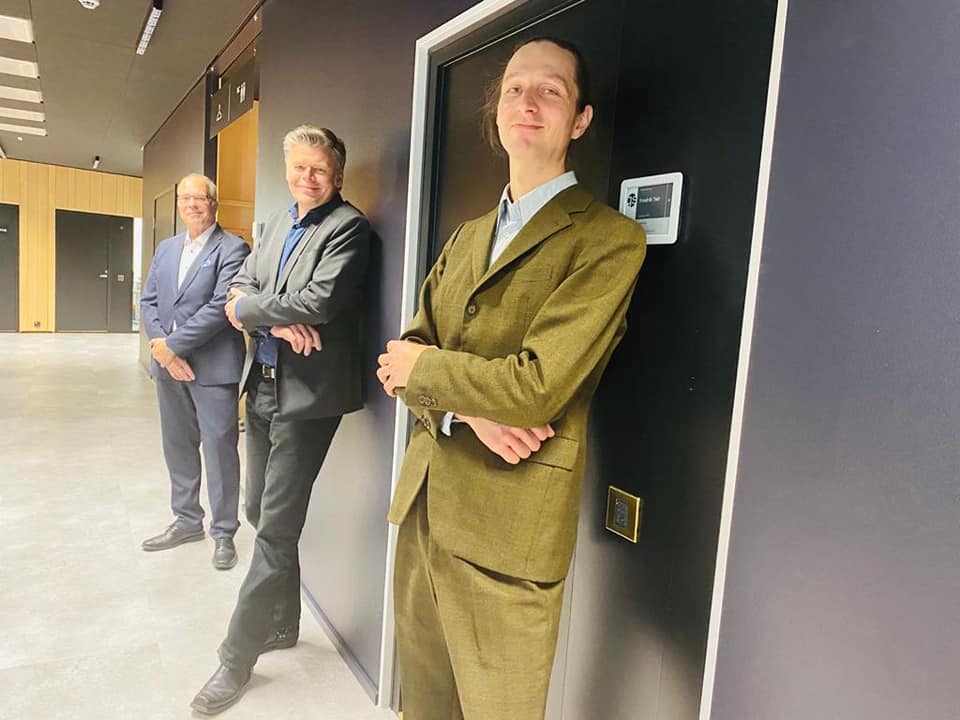
Carbon Action engages also companies actively and in increasing numbers on the Carbon Action company platform. Juha Nousiainen, Director of Carbon Neutral Milk Chain at Valio dairy really practices what he preaches as he introduces the R&D work and already adopted practises to be carbon neutral in milk production by 2035. He does this together with the 4,500 dairy producers, with researchers, and with the cows grazing on grasslands. Every step in the chain is geared for overall sustainability. Manure and side streams are effectively processed further to energy, fertilizers, bedding material and biofuel. It is evident that Valio is a good example of a company that sets a clear vision, high targets and takes steady steps toward them. Aiming at no less than to renew the food production system sector in Europe.
Discussion was active on the chat and on the twitter (#CarbonAction). One popular subject was the motivation of farmers. For example, ‘Land and Livestock Management for Life’ asked what has attracted farmers to join the Carbon Action work. Saara Kankaanrinta answered that we offer hope, motivation, intensive professional training and profitability – farmers want to be part of the solution, not the problem. Juuso Joona emphasized the importance of knowledge, farmers are very keen to learn, and co-operation and peer to peer learning is very motivating. Juha Nousiainen added that when Valio started carbon farming training in co-operation with BSAG, it was not difficult at all to get farmers to attend. In addition, examples are important, like the one from Juuso, that show that with the right practices, it is possible to store 1 ton of additional carbon per hectare per year.
The final greeting was rightfully given to Jytte Guteland, who appreciated the concrete practical work of Carbon Action that the whole EU can learn from and follow. Good examples and solutions, like carbon farming and agroforestry, that can be widely adopted in the society are really needed as the EU aims for climate neutrality by 2050 and a 60% reduction in GHG emissions by 2030, if the position of the EP is to prevail.
The pioneering work in Finland by Carbon Action platform was highly regarded and valued by both MEPs as well as many of the participants of the event. For example, Paul Luu from the 4/1000 initiative commented through the chat that Finland is in a good situation to inspire the countries in the same conditions. And the soil is something that can unite all of us with different interests. As the whole world is fighting the unfortunate pandemic, Saara Kankaanrinta – holding a piece of turf in her hands – reminds us of the connection between the microbes in the soil and microbes in our body: the soil is really the key to our health.
Recording of the Carbon Action MEP breakfast webinar can be accessed here, the discussion including also the discussion on chat (under comments):
Carbon farming webinar 29.10.2020
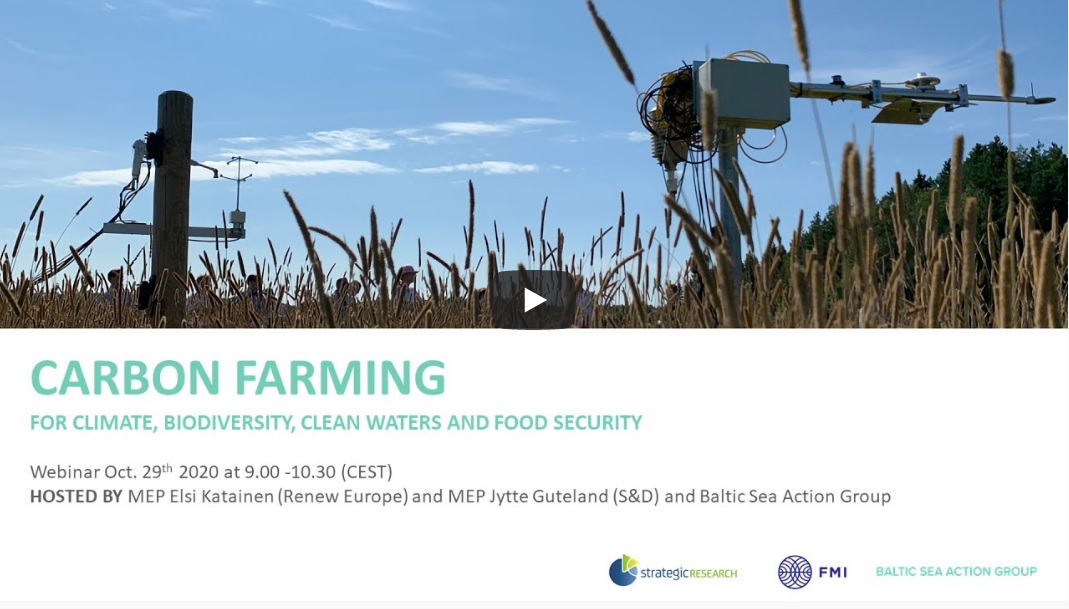
And power point presentations shown are available here.
More information on Carbon Action®, including an overview paper on ‘regenerative agriculture’ is available at carbonaction.org.


